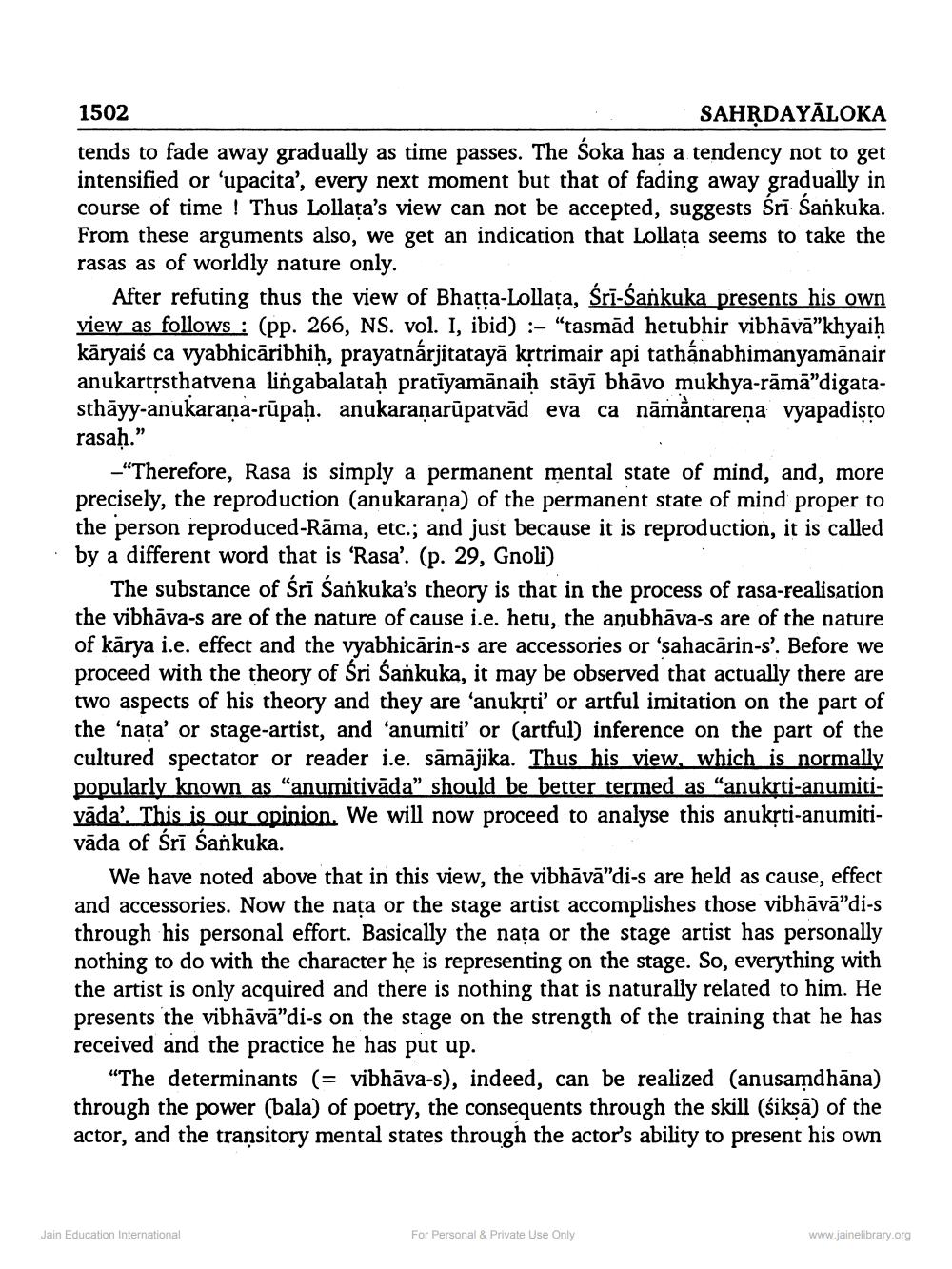________________
1502
SAHRDAYĀLOKA tends to fade away gradually as time passes. The Soka has a tendency not to get intensified or 'upacita', every next moment but that of fading away gradually in course of time! Thus Lollața's view can not be accepted, suggests Śrī Sankuka. From these arguments also, we get an indication that Lollata seems to take the rasas as of worldly nature only.
After refuting thus the view of Bhatta-Lollața, Śrī-Sankuka presents his own view as follows : (pp. 266, NS. vol. I, ibid) :- “tasmād hetubhir vibhāvā"khyaih kāryaiś ca vyabhicāribhiḥ, prayatnárjitatayā krtrimair api tathánabhimanyamānair anukartssthatvena lingabalatah pratīyamānaih stāyī bhāvo mukhya-rāmā”digatasthāyy-anukarana-rūpah. anukaranarūpatvād eva ca nāmântare rasah."
“Therefore, Rasa is simply a permanent mental state of mind, and, more precisely, the reproduction (anukarana) of the permanent state of mind proper to
the person reproduced-Rāma, etc.; and just because it is reproduction, it is called · by a different word that is ‘Rasa'. (p. 29, Gnoli)
The substance of Śrī Sankuka's theory is that in the process of rasa-realisation the vibhāva-s are of the nature of cause i.e. hetu, the anubhāva-s are of the nature of karya i.e. effect and the vyabhicărin-s are accessories or 'sahacarin proceed with the theory of Sri Sankuka, it may be observed that actually there are two aspects of his theory and they are 'anuksti' or artful imitation on the part of the 'nata' or stage-artist, and 'anumiti' or (artful) inference on the part of the cultured spectator or reader i.e. sāmājika. Thus his view, which is normally popularly known as “anumitivāda" should be better termed as “anukrti-anumitivāda'. This is our opinion. We will now proceed to analyse this anuksti-anumitivāda of Sri Sankuka.
We have noted above that in this view, the vibhāvā"di-s are held as cause, effect and accessories. Now the nata or the stage artist accomplishes those vibhāvā"di-s through his personal effort. Basically the nata or the stage artist has personally nothing to do with the character he is representing on the stage. So, everything with the artist is only acquired and there is nothing that is naturally related to him. He presents the vibhāvā"di-s on the stage on the strength of the training that he has received and the practice he has put up.
"The determinants (= vibhāva-s), indeed, can be realized (anusamdhāna) through the power (bala) of poetry, the consequents through the skill (śikṣā) of the actor, and the transitory mental states through the actor's ability to present his own
Jain Education International
For Personal & Private Use Only
www.jainelibrary.org




